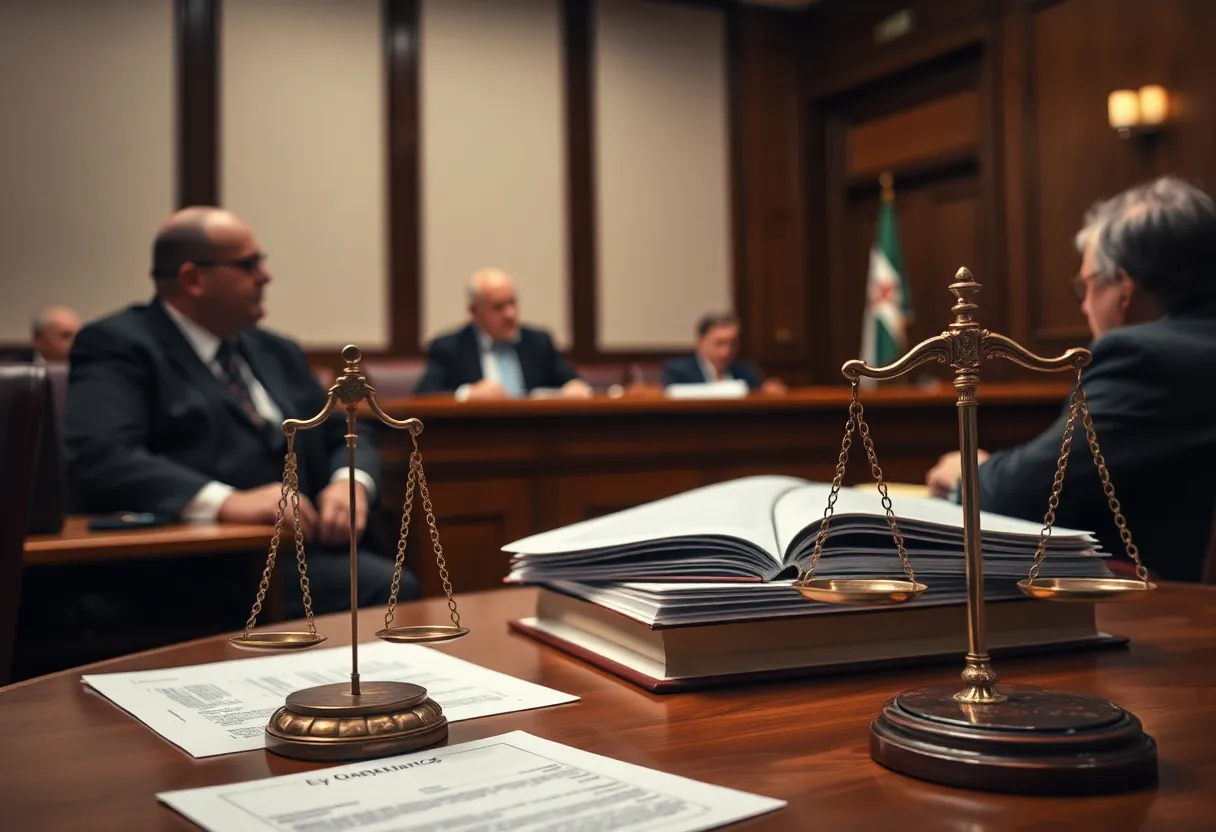News Summary
The 4th Circuit Court of Appeals affirmed Bestwall LLC’s bankruptcy plan to manage asbestos liabilities, setting a significant legal precedent.
Judicial Ruling Shapes Future of Asbestos Liabilities in Bankruptcy
In a significant ruling, the 4th Circuit Court of Appeals has affirmed a bankruptcy reorganization plan for Bestwall LLC, a subsidiary of Georgia-Pacific, which aims to effectively address the overwhelming challenges posed by asbestos-related liabilities. This decision not only clears a major hurdle for Bestwall but also sets a potential legal precedent for how companies can manage extensive tort liabilities through bankruptcy, even while solvent.
Background of the Case
The bankruptcy case was initiated on May 31, 2024, against the backdrop of Bestwall’s ongoing battle with numerous lawsuits tied to asbestos exposure and the resulting health impacts. The lawsuit brought forth the nature of the Chapter 11 reorganization aimed specifically at addressing these substantial liabilities in a structured and financially prudent manner.
Despite objections from Truck Insurance Exchange, which claimed that the reorganization plan was proposed in bad faith, the court’s ruling on May 23, 2025 reinforced the legitimacy and good intentions behind the financial plan. The court’s ruling confirmed that the bankruptcy plan was solidly negotiated and was focused on resolving liabilities effectively.
Key Rulings by the Court
The judicial panel, including U.S. Circuit Judges G. Steven Agee, Robert B. King, and A. Marvin Quattlebaum, emphasized that under 11 U.S.C. § 1129(a)(3), a plan of reorganization is deemed to be proposed in good faith if it aims to maximize the value of the estate while also preserving the interests of the creditors. The court highlighted that the reorganization plan had garnered unanimous support from all stakeholders involved, including claimants with rightful asbestos-related claims.
Contrary to the assertions made by Truck Insurance Exchange, which questioned the integrity of the proposal, the court found the objections to be speculative and lacking in substantive evidence. The judges concluded that the plan effectively maximized the estate’s assets through preserving the debtors’ valuable insurance coverage, thereby not constituting bad faith.
Understanding the Asbestos Trust
An important part of this ruling involved the establishment of an asbestos trust, which will assume the liabilities related to asbestos claims. The court found that this trust met the statutory requirements outlined in 11 U.S.C. § 524(g) by ensuring it is sufficiently funded through the securities of the Debtors. This feature of the plan is crucial for suggesting that claimants will have a real avenue for recovering damages without being deprived of remedies.
The implications of the potential lack of adequate resources were real, as the ruling reflected concerns about the risks inherent for claimants facing uninsured punitive damages. The establishment of a viable asbestos trust serves to mitigate these risks significantly, offering creditors some degree of assurance in their pursuit for redress.
Legal Implications and Considerations
This ruling not only clears a path for Bestwall to proceed but may set the stage for similar companies grappling with expansive liabilities to utilize bankruptcy as a strategic tool. While the legal landscape surrounding Chapter 11 proceedings for solvent companies navigating asbestos claims is nuanced, this case shines a light on the manner in which bankruptcy can be leveraged even amidst questions of ethics and fairness.
The involvement of various law firms, notably Robinson & Cole LLP, Kellogg, Hansen, Todd, Figel & Frederick PLLC, and others representing the Bestwall committee, illustrates the complexity of legal maneuvers necessary to enhance the reorganization’s standing.
Looking Ahead
As the legal proceedings surrounding the case continue, the implications of this ruling are likely to reverberate within the business community and among victims of asbestos exposure. May 22, May 21, and other dates leading to the ruling were crucial for building the framework of the outcomes witnessed.
The decision of the 4th Circuit thus not only underscores the importance of good faith in bankruptcy proceedings but also reflects the evolving strategies that solvent companies may adopt to manage troublesome liabilities, including those arising from asbestos claims.
Deeper Dive: News & Info About This Topic
HERE Resources
Asbestos Warning Signs Emerge as Demolition Projects Unfold in New Orleans
Asbestos Threat Neutralized at Trumbull Center
Trumbull Center Asbestos Scare Declared Non-Hazardous
Health Risks Loom in St. Louis Following Tornado Damages
Mesothelioma Diagnosis Sparks Alarm Over Asbestos Exposure at Former Data Center
New Laws May Threaten Mesothelioma Payouts: A Closer Look
Legal Battle Unfolds: Mesothelioma Victim Takes on Shipyard Giant
Tragic Deaths Linked to Asbestos Exposure in Shropshire
Mesothelioma: Key Insights into Diagnosis, Treatment, and Prognosis
Clydebank Families Launch Online Memorial for Asbestos Victims
Additional Resources
- Law360: SC Justices Affirm Receivership Order in Asbestos Dispute
- Wikipedia: Bankruptcy
- Virginia Lawyers Weekly: Asbestos Bankruptcy Plan Good Faith Ruling
- Google Search: Asbestos bankruptcy
- Wall Street Journal: Asbestos Defendants Seek to Prevent Deletion of Claim Records
- Encyclopedia Britannica: Asbestos
- Bloomberg Law: Bestwall Appeal Offers Glimpse at Asbestos Bankruptcies Future
- Google News: Asbestos bankruptcy



















